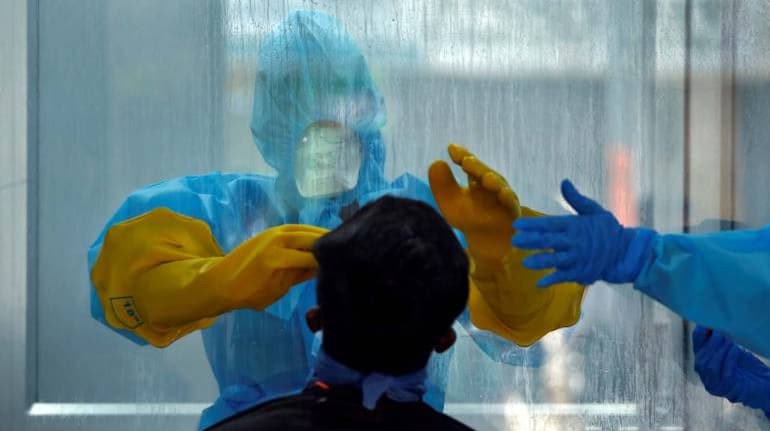



Ravinder Kumar*, 65, a retired bank executive from Vashi, Navi Mumbai, is suffering from end-stage renal disease (ESRD), which means his kidneys are damaged and can't filter blood the way they should.
He needs to undergo a treatment called hemodialysis, wherein his blood HSA (human serum albumin) has to be filtered through a machine that acts like an artificial kidney and is returned back into the body. It needs to be performed in a designated dialysis centre. It is usually needed about three times per week, with each session taking about 3-4 hours. Missing dialysis sessions will lead to a build-up of toxins in the blood (poisoning of blood) and death within a few weeks.
Dialysis is a recurring expense procedure. Each session costs about Rs 1,800 in normal private dialysis centres; in large private hospital chains, a dialysis session costs up to Rs 3,000 and above.
Everything was normal for Kumar up until the third week of March. But COVID-19 lockdown had changed all that.
Going to a hospital for dialysis not only increases the risk of contracting the novel coronavirus but also becomes expensive.
Kumar said the hospital where he was undergoing dialysis increased the charges by Rs 200 per session, and also advised him to get a COVID-19 test done. That test would cost Rs 4500.
Kumar says cost of his dialysis treatment has risen by 10-15 percent in a month, which is substantial.
But the retired banker is fortunate to get his dialysis treatment done as he can afford it and has his own car to commute between hospital and home. Many other patients in India are not so lucky and are skipping their dialysis sessions, as they can't afford private transport during the lockdown. Even though dialysis is offered free of cost at district government hospitals, getting there is becoming a problem.
India has about 100,000 patients needing dialysis.
Catch-22 situation
NephroPlus, which runs India's largest chain of dialysis centres, said they are seeing about 10-15 percent drop in number of dialysis sessions that they do across their network, even as their costs have shot up.
"In addition to costs of personal protection equipment (PPE), three-ply masks and consumables, the price of the anti-coagulant drug Heparin that's given to the patient during dialysis has shot by more than 120 percent," said Vikram Vuppala, Founder and CEO of NephroPlus.
NephroPlus operates 203 dialysis centre across India and does about 1.5 lakh dialysis sessions per month. A large portion of these dialysis centres are located in hospitals.
Vuppala says it has become an operational challenge to get staff to the centres.
"Most of our staff commute about 15-20 km to reach their respective dialysis centres. Travel has become difficult during lockdown due to lack of public transport. We tried to accommodate them at PG (paying guest) hostels near to the centres. But landlords are reluctant to provide accommodation to healthcare workers," Vuppala added.
NephroPlus denied any rejection of patient for want of COVID-19 test.
"For old patients we are not asking for COVID-19 test. But a new patient who comes to any of our centres will be considered a COVID-19 suspect; we are not denying such patients dialysis. We are providing dialysis in isolation, with our staff following all COVID-19 infection control protocols. However, for the next dialysis session we are asking the patient to get a COVID-19 test," Vuppala said.
"We see cases of asymptomatic people who are testing positive; if that happens we have to shut the entire dialysis centre, and send our staff to isolation," he added.
It's not NephroPlus alone, other hospitals too have been following similar protocols.
"We are not denying dialysis service to patients coming to the hospital. But we take several precautions like measuring the patient's body temperature, hand sanitisation, giving the person face mask, and our staff also had to wear PPE," said a doctor who heads the nephrology division of a major hospital. One PPE costs about Rs 1,000.
(*Name changed to protect identity)
Discover the latest Business News, Sensex, and Nifty updates. Obtain Personal Finance insights, tax queries, and expert opinions on Moneycontrol or download the Moneycontrol App to stay updated!
Find the best of Al News in one place, specially curated for you every weekend.
Stay on top of the latest tech trends and biggest startup news.